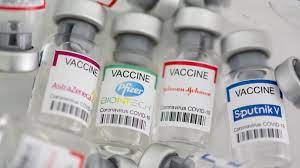
COVID-19 no longer considered a public health concern

By Jaenique Swartz.
On 5 May, the World Health Organization (WHO) Director General, Dr Tedros Ghebreyesus confirmed that COVID-19 will no longer be categorized as a Public Health Emergency of International Concern (PHEIC).
PHEICs are declared when an emergency is serious, sudden, unusual or unexpected with implications beyond the affected state’s national border.
COVID-19 was declared a state of emergency in March of 2020 and after more than three years since the start of the pandemic in late 2021, the world is ready to move to the next phase.
However, the lack of PHEIC status does not mean COVID-19 is no longer a pandemic, “We must also be clear about the need to continue to protect our most vulnerable people, as we do for other deadly but preventable diseases,” says Dr Seth Berkely, Chief Executive of Gavi, the Vaccine Alliance.
Berkley further stated “Around three out of ten older adults in lower-income countries have not yet received two doses, and we know they are among those most likely to become severely ill or die from COVID-19.”
The Emergency Committee has met every three months since the start of the pandemic in 2020, where they addressed concerning matters of the pandemic, the committee views the lifting of the PHEIC as a sign of the progress made in the past year.
COVAX, a global initiative for equitable access to COVID-19 vaccines which is co-led by Gavi has focused on lower income countries.
The entity has attained a global coverage with a primary series (two doses) of vaccines which stands at an average of 64% and an average of 55% in the lower income countries.
COVAX has delivered nearly 2 billion doses to 146 countries to continue strengthening health systems.
Gavi and partners have been working to help countries to ensure an unprecedented global response that can smoothly transition to a tailored, country-specific effort to deliver COVID-19 vaccines alongside other vital routine services.
A plan to integrate COVID-19 vaccine delivery into vaccination programmes to curb the spread of the virus, especially in lower income countries that have not received their full quota of COVID-19 vaccines.
The future vaccination strategy will be discussed at the upcoming Gavi Board meeting in June this year.









































